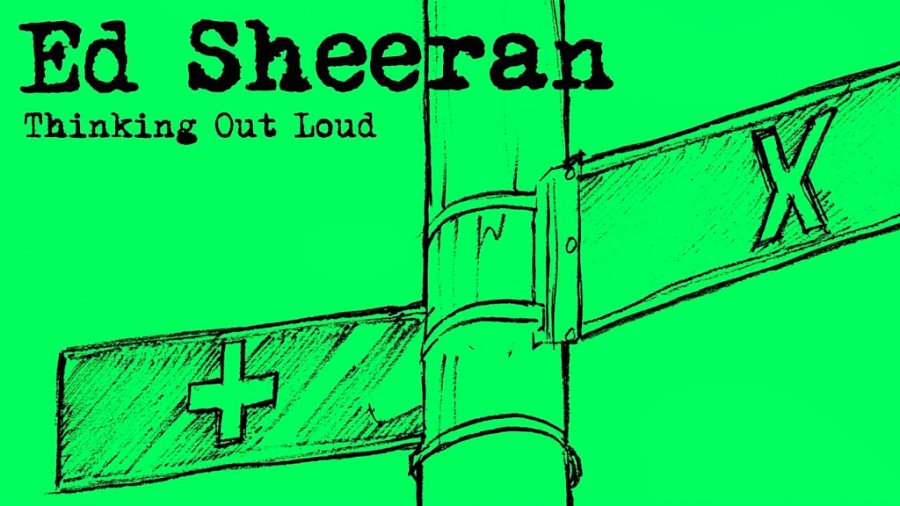Ed Sheeran Lawsuits: A Legal Examination of Copyright Infringement in Music
In the world of music, copyright infringement lawsuits are not uncommon. Artists often find themselves in legal battles over the originality of their work. One such case that has garnered significant attention in recent years involves British singer-songwriter Ed Sheeran. This article will delve into the legal intricacies of the lawsuits filed against Sheeran, providing a comprehensive understanding of the issues at hand.
The Shape of You Lawsuit

In 2017, the music industry was rocked by a lawsuit involving British singer-songwriter Ed Sheeran and his chart-topping hit "Shape of You". The claimants, Sami Chokri and Ross O'Donoghue, alleged that Sheeran's song bore striking similarities to their 2015 track "Oh Why". The case was heard in the UK High Court, with the claimants seeking damages and a songwriting credit.
The crux of the case revolved around a particular musical phrase in "Shape of You", which Chokri and O'Donoghue claimed was identical to a melody in their song. The phrase in question, "Oh I, oh I, oh I, oh I", was a recurring motif in both songs. The claimants argued that Sheeran had either consciously or subconsciously copied this phrase, thereby infringing on their copyright.
Sheeran, on the other hand, vehemently denied these allegations. He maintained that any similarities were purely coincidental and that "Shape of You" was an original composition. His defense team argued that the musical phrase was not unique or distinctive enough to warrant copyright protection.
In 2022, after a lengthy legal battle, a London High Court judge ruled in favor of Sheeran, dismissing the claims of copyright infringement. The judge's decision was based on the argument that the musical phrase in question was not unique or distinctive enough to be protected by copyright law. This ruling was a significant victory for Sheeran and a blow to Chokri and O'Donoghue.
However, the implications of this case extend beyond the parties involved. It raises important questions about the nature of creativity and originality in music. It also highlights the challenges of proving copyright infringement in the music industry, where many songs can sound similar due to the use of common chord progressions and melodies.
The Thinking Out Loud Lawsuit

In a separate lawsuit, Sheeran was accused of copying elements from Marvin Gaye's classic "Let's Get It On" in his song "Thinking Out Loud". The claimants in this case were the heirs of Ed Townsend, who co-wrote "Let's Get It On" with Gaye. The lawsuit, filed in the United States, alleged that "Thinking Out Loud" copied the melody, rhythms, harmonies, drums, bassline, backing chorus, tempo, syncopation, and looping of "Let's Get It On". The claimants sought damages and a jury trial.
Sheeran's defense in this case was similar to his stance in the "Shape of You" lawsuit. He denied the allegations and argued that the elements claimed to be copied were common musical techniques that could not be copyrighted. His defense team also pointed out that Sheeran had never tried to hide his admiration for Marvin Gaye and that any similarities between the two songs were simply a reflection of Gaye's influence on Sheeran's music.
In May 2023, a jury ruled in Sheeran's favor, finding that he and his co-writer had independently created "Thinking Out Loud" without copying it from "Let's Get It On", clearing him of millions in potential legal damages. However, the heirs of Ed Townsend have since filed a notice of appeal in Manhattan federal court, marking the first step toward asking a federal appeals court to overturn the outcome and revive their lawsuit against Sheeran.
This lawsuit, like the "Shape of You" case, underscores the complexities of copyright law in the music industry. It highlights the challenges of distinguishing between inspiration and imitation, and raises questions about how far copyright protection should extend in music.
Ed Sheeran lawsuits: The Legal Perspective

Understanding Copyright Infringement
From a legal standpoint, these lawsuits highlight the complexities of copyright law in music. Copyright infringement is not merely about direct copying; it also encompasses the use of a substantial part of a copyrighted work. However, defining what constitutes a 'substantial part' is subjective and depends on the specific circumstances of each case.
In the "Shape of You" lawsuit, the court had to consider whether the musical phrase "Oh I, oh I, oh I, oh I" was a substantial part of "Oh Why". Similarly, in the "Thinking Out Loud" lawsuit, the court had to determine whether the alleged copied elements constituted a substantial part of "Let's Get It On". These cases underscore the challenge of defining what constitutes a 'substantial part' of a work, a concept that is central to copyright law but is often difficult to apply in practice.
The Concept of 'Access'
Another crucial aspect of these cases is the concept of 'access'. To prove copyright infringement, the claimant must demonstrate that the defendant had access to the copyrighted work. In the age of streaming and digital music, proving access is less challenging than in the past, as most songs are readily available online. However, access alone is not sufficient to prove copyright infringement; the claimant must also demonstrate that the defendant used elements of the copyrighted work in their own creation.
In the case of Sheeran, the claimants argued that he had access to their songs and used substantial parts of them in "Shape of You" and "Thinking Out Loud". Sheeran, however, maintained that any similarities were coincidental and that he did not use any elements of the claimants' songs in his works.
The Role of the Courts
The role of the courts in these cases is to weigh the evidence and determine whether copyright infringement has occurred. This involves a careful analysis of the songs in question, often with the assistance of music experts. The courts must also consider the arguments of both sides and apply the relevant legal principles.
In both the "Shape of You" and "Thinking Out Loud" lawsuits, the courts ruled in favor of Sheeran. However, these decisions are not the end of the story. The heirs of Ed Townsend have filed a notice of appeal in the "Thinking Out Loud" case, indicating their intention to challenge the court's decision. The appeal process could take several months or even years, and the outcome is uncertain.
Implications for Copyright Law
These lawsuits have significant implications for copyright law in the music industry. They raise important questions about the nature of creativity and originality, and the extent to which artists can draw on existing works in their own creations. They also highlight the challenges of proving copyright infringement in a field where many works can sound similar due to the use of common musical elements.
Furthermore, these cases underscore the need for clear guidelines on what constitutes copyright infringement in music. Without such guidelines, artists and songwriters may find themselves in a constant state of uncertainty, unsure of what they can and cannot do in their creative processes.
The Impact of Ed Sheeran lawsuits on the Music Industry

According to legal experts who write for us on law, these lawsuits have significant implications for the music industry. They underscore the fine line between inspiration and imitation. Artists often draw inspiration from existing works, but there is a risk of crossing into copyright infringement.
The outcomes of these lawsuits could potentially influence how artists approach songwriting. If the courts were to rule in favor of the claimants, it could set a precedent that may deter artists from incorporating common musical elements into their songs for fear of legal repercussions.
Furthermore, these cases highlight the need for clear guidelines on what constitutes copyright infringement in music. Without such guidelines, artists and songwriters may find themselves in a constant state of uncertainty, unsure of what they can and cannot do in their creative processes.
Conclusion
The Ed Sheeran lawsuits serve as a stark reminder of the legal challenges that can arise in the music industry. They underscore the importance of understanding copyright law and its implications for artists and songwriters. As the music industry continues to evolve in the digital age, so too will the legal landscape that governs it.
More to Read:
Previous Posts:







